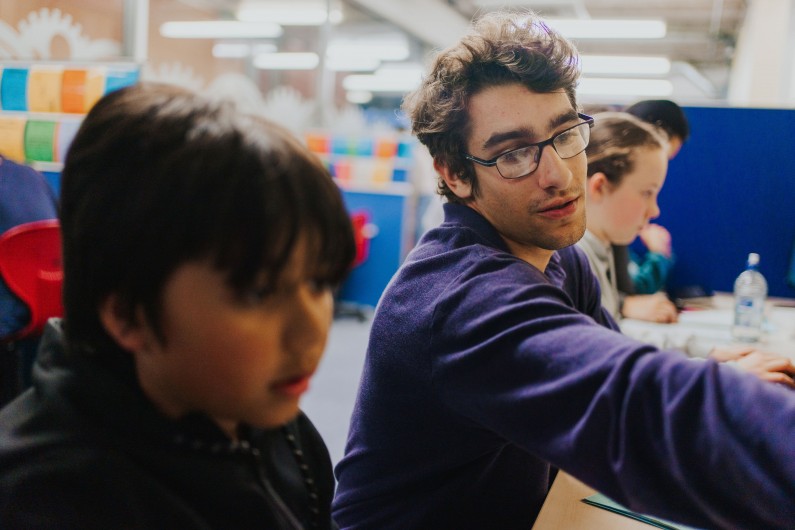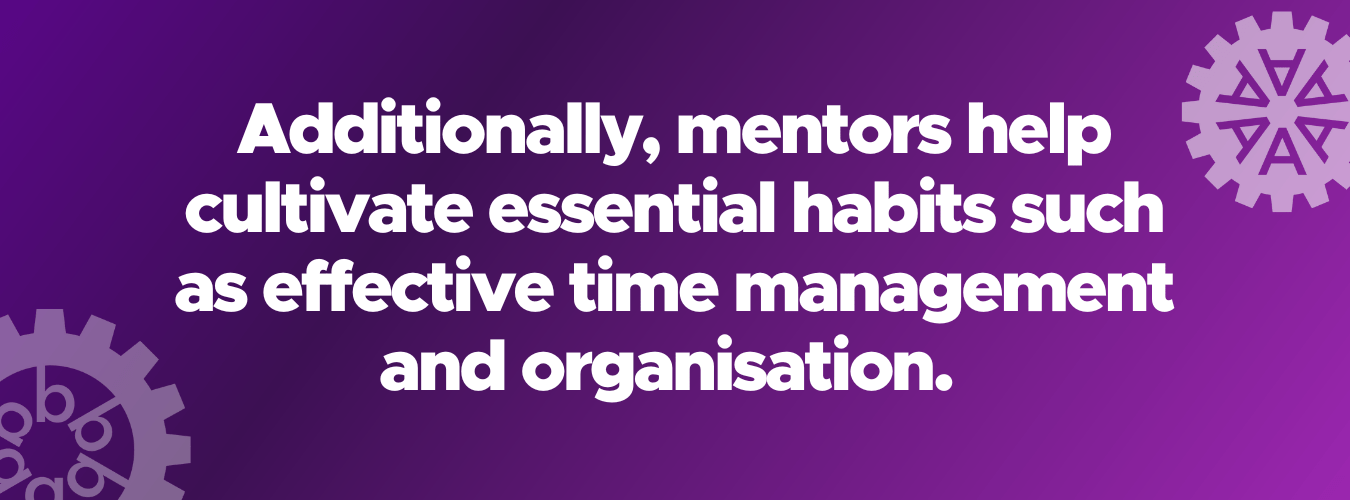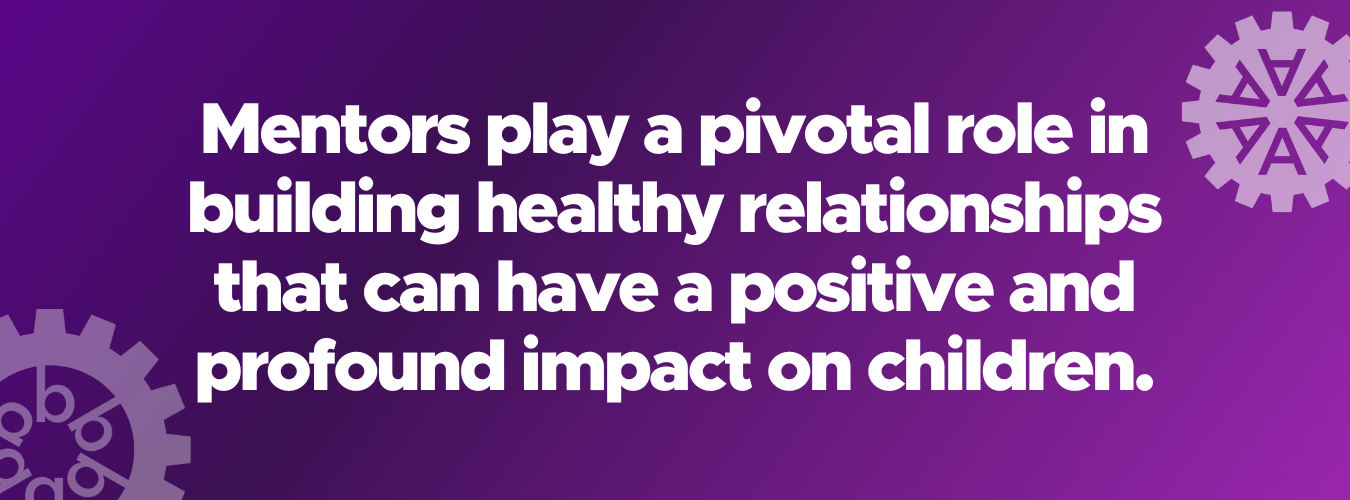Importance of Mentorship

Mentoring is a valuable asset for children, providing essential guidance and support throughout their educational journey. It is a well-known fact that children often model the behaviour of adults they are surrounded by, and having a suitable mentor can significantly enhance their ability to become independent learners.
The advantages mentors bring to the table are extensive, from encompassing educational support to providing valuable feedback about homework to increasing confidence and continual encouragement, which all contribute to a child’s overall growth and development.
While traditionally, the benefits of mentor relationships have been associated with career development opportunities and leadership for adults, it is important to recognise that mentorship can have equally profound effects on children.
In this blog post, we will delve into the key benefits of mentorship for children, illuminating its importance in their journey of growth and learning.
Is your child struggling to keep up with schoolwork? Are they falling behind? Are they bored in class? Or are you looking for extension work for your child? Check out our eBook to learn more about how we help your child improve academically and build confidence through our in-centre after-school tuition.
Increasing confidence
Mentoring is a pivotal aspect of fostering confidence in young learners. Mentors have a keen eye for identifying strengths and areas for growth, enabling children to recognise and embrace their capabilities.
One remarkable benefit of mentorship is its positive impact on naturally shy or reserved children, as mentors become guiding lights, providing the encouragement and support needed to step out of their shells.

Accountability and Leadership skills
Mentors play a pivotal role in maintaining achievement by taking on the responsibility of setting challenges that align with goals or weaknesses. They subsequently follow up on these challenges during future mentoring sessions, fostering good behaviour and encouraging follow-through.
Mentors also assist children in establishing their own goals, breaking them down into smaller, manageable steps, creating a clear roadmap towards achieving the desired outcomes.
Resilience in the Face of Challenges
Life is full of challenges, and the academic journey is no exception. However, with the support of a mentor, children can not only tackle these obstacles but also develop invaluable resilience, knowledge, and perseverance that will serve them throughout their lives.

When children encounter difficulties in their education, a mentor becomes a reliable pillar of strength, offering a listening ear, empathetic guidance, and assurance that facing challenges is a normal part of the learning process.
By having a mentor who believes in them and their abilities, children gain the confidence to confront and overcome adversities. Mentors inspire a "never give up" attitude, encouraging both the mentor and child to keep moving forward and to see each hurdle as an opportunity for growth.
Individualised Goal-Setting
Goal-setting is undeniably a critical factor in attaining success and achievement, and mentors play a pivotal role in guiding children towards setting and achieving meaningful, individualized learning objectives.
Through thoughtful discussions and brainstorming sessions, mentors assist children in breaking down their aspirations into actionable steps, instilling a sense of purpose and direction.
Additionally, mentors help cultivate essential habits such as effective time management and organisation. These skills are invaluable as children learn to balance their academic pursuits with extracurricular activities and personal commitments.

Nurturing Emotional Intelligence
Emotional intelligence is a critical skill that contributes to overall success and well-being. Through mentorship, children can develop and nurture their emotional intelligence, encompassing self-awareness, self-regulation, empathy, and social skills.
A mentor serves as a role model for emotional intelligence, demonstrating how to handle emotions effectively, navigate interpersonal relationships, and communicate empathetically.
Developing leadership skills and positive attitudes
Children's attitudes towards school can vary, and at times, they may exhibit a negative attitude that hinders their ability to address learning gaps or school-related challenges. In such situations, mentors play a pivotal role in building healthy relationships that can have a positive and profound impact on children's lives.

Through open and empathetic communication, mentors ask leading questions to understand school-related issues and gain another perspective, fostering a sense of trust and comfort. By sympathising with the struggles, mentors validate a child’s feelings and experiences.
Improved communication skills
Communication is an important skill to develop in children. Mentorship can help children learn how to communicate with different people with whom they may not have interacted previously with and allow them to experience different relationship dynamics.
Direction and inspiration
Children who receive mentorship from an inspirational mentor may begin to see themselves in a different light and feel empowered to achieve more. Depending on the child’s age, a good mentor may help them set career goals, consider a broader range of study options, or help them visualise the next year of their education and what pathways or subjects may be a good fit for them.
Encouraging Exploration of Interests and Passions
Mentors play a significant role in encouraging children to explore their interests and passions beyond the standard curriculum. By exposing children to diverse experiences, mentors can help them discover their strengths, skills and interests, potentially leading to future career paths.

Mentorship is a powerful tool that can help children develop key skills such as confidence, effective communication, and the ability to consider different pathways.
If your child requires additional support to address weaknesses within their learning or needs extension work NumberWorks’nWords can help!
Our tutoring methods are designed to support children in achieving their best results while building confidence and celebrating success. To learn more about our math and English after-school tutoring, reach out to your local centre or book a free assessment today.




